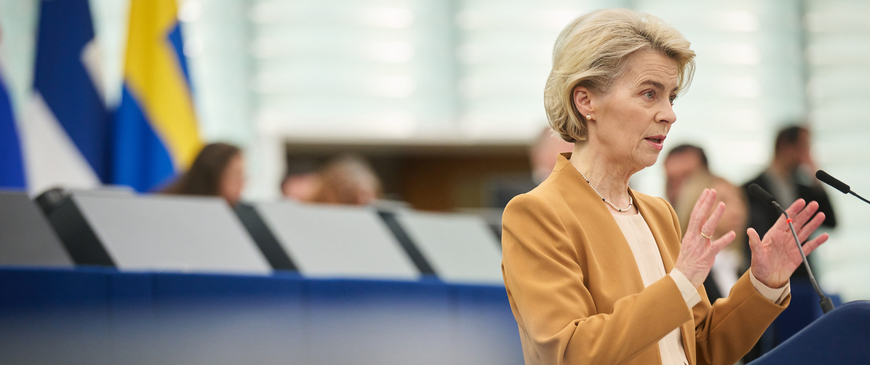
EU enlargement is not a foregone conclusion
It will be a slow process and European leaders will have their work cut out persuading voters of the merits.
The conventional wisdom in Brussels is that the EU is moving inexorably towards a major round of enlargement. Commission president Ursula von der Leyen makes the geopolitical case: faced with Russian expansionism, Ukraine and Moldova should not be left in the cold — and nor should the Western Balkans, promised membership 20 years ago. On December 15 the European Council may agree to accession talks with Ukraine, Moldova and Bosnia, and a parallel debate on the institutions and policies that a 35-country EU would require.
EU leaders do not currently question the wisdom or likelihood of enlargement, at least in public. But in private, some of the most seasoned Brussels officials speculate that it may never happen. They point out that at every stage of the process — such as the opening of each of the 35 negotiating chapters — all 27 members must agree that the candidate is ready for the next step.
One reason for scepticism is that the EU is unlikely to agree on significant institutional reforms. France was long a foot-dragger on enlargement but under President Emmanuel Macron has become supportive. Yet he thinks enlargement would slow decision-making unless matched by the removal of national vetoes, for example on tax. Germany thinks similarly and prioritises scrapping vetoes on foreign policy. But changing voting rules requires unanimity — and at least half the members want to keep vetoes on tax or foreign policy.
Without major institutional reform, France and Germany — and others wanting more EU integration — may balk at enlargement. France’s constitution is another hurdle: any accession must be approved by referendum or a three-fifths majority in both houses of parliament.
Many governments worry about the impact on the EU of such a poor country as Ukraine. The EU has 157mn hectares of farmland — and Ukraine would add a further 41mn. If it joined the EU today, it would soak up so much of the farming and regional funds that existing members would be left with very little. The problem would be solved if Germany and other net contributors to the EU budget were willing to pay a lot more — but they are not.
Officials from many countries, including France, Ireland, Poland, Slovakia and Spain, worry about public opinion. They fear that when voters see how enlargement will curtail the benefits they receive from the EU, they may vote for parties that oppose it. The recent Dutch elections were a triumph for one such party, led by Geert Wilders. The next Dutch government could block accession talks with Ukraine and others.
The six Western Balkan states have made little progress towards the EU, held back by corruption, poor governance and ethnic tensions — plus a lack of commitment from the EU. Germany and the countries that were in the Austro-Hungarian empire say Ukraine should not join unless some Balkan candidates enter at the same time. Yet while Ukraine and Moldova are eagerly reforming, to satisfy the EU, few Balkan states are doing so. The Belgians, Dutch and Nordics insist that only candidates that respect the rule of law should join the EU. They are fed up with Hungary for disrespecting it and wary of letting in countries that could behave similarly.
Much of Europe currently feels huge sympathy for Ukraine. But will that endure, if and when the fighting stops? Already there are mutterings in Brussels about the country’s corruption and autocratic tendencies. Hungary’s prime minister, Viktor Orbán, complains about Ukraine’s treatment of its Hungarian minority — and says he will block its accession talks and funding (if the Commission releases money due to Hungary, but blocked because of its non-compliance with the rule of law, Orbán may relent).
Everyone agrees that enlargement will be a slow process — which is why there is talk of letting candidates that meet certain criteria into some EU policies and funds before they are full members with voting rights. Some officials predict that quite a few candidates will end up partially in, without ever graduating to full membership.
Von der Leyen is right to press the EU to enlarge. If candidates’ access to farming and regional funds is phased in gradually over decades, the pain to existing members may be bearable. And though institutional reform is desirable, its absence should not preclude EU expansion, because the geopolitics is more important. But EU leaders will have to work hard to persuade voters of the case for enlargement. There is a real risk that the EU will raise expectations but then dash hopes, leading to a tragic sense of disillusionment.
Charles Grant is director of the Centre for European Reform.
